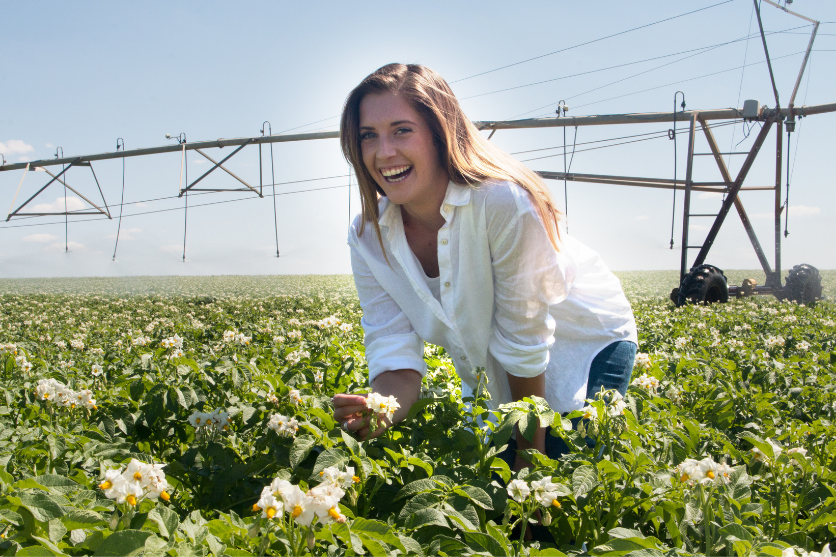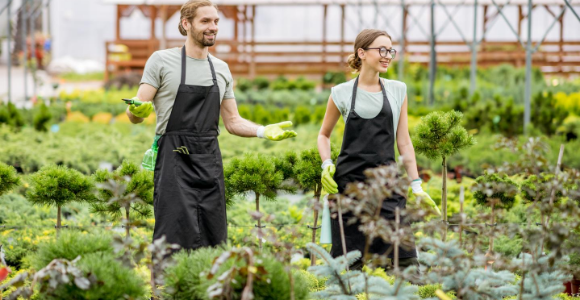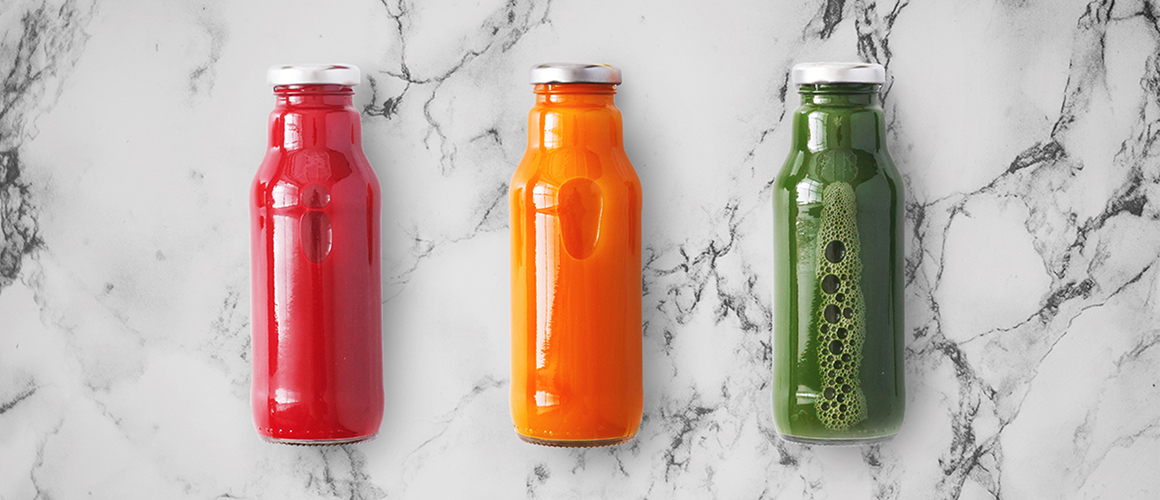
Leading SA potato & veg grower Renee Pye joins the AUSVEG Board
1 December 2020
Final report of the inquiry into the Working Holiday Maker Program
8 December 2020National Lost Crop Register
AUSVEG is urging growers to utilise the National Lost Crop Register to log their losses due to the lack of labour available to vegetable producers across Australia.
This is an initiative driven by the NFF Horticulture Council and will help AUSVEG and other representative bodies to continue to advocate to government to urgently address the critical labour shortage.
The shortage has already resulted in lost crops and, with no silver bullet in sight, we sadly expect labour shortages to continue through summer and into next year – with the issue forecast to worsen as 2021 progresses.
It is vitally important that, as an industry, we record and track these losses. As this issue unfolds, the evidence that we gather through this national register will enable us to inform decision-making and improve our ability to advocate for greater government intervention where necessary.
AUSVEG urges growers to make entries to the register as new losses are realised. These could be experienced as a direct result of not having access to enough labour to pick or pack some of your produce. Growers can be assured that all entries are entered anonymously.
Labour
Labour continues to be the number one issue for growers and a central focus for AUSVEG in its advocacy activities. Many labour issues are coming to a head, with horticultural growers across the country walking away from crops or ploughing them into the ground.
It’s frustrating that it has come to this for the industry, as AUSVEG and other horticultural industry bodies have been highlighting labour concerns – and the need to address them – since the COVID-19 pandemic began in March.
Seasonal Worker Programme
The Seasonal Worker Programme and Pacific Labour Scheme continue to be focuses for industry, with a view to bringing in as many workers from the Pacific Islands as possible.
Minister for Agriculture David Littleproud has stated that there are currently 22,000 harvest workers who are ‘work-ready’ in the Pacific Islands, and can participate in the Pacific Labour Scheme and the Seasonal Worker Programme.
Industry is continuing to work with all levels of government across the country to get flights moving as soon as possible and get workers on-farm.
Queensland has received two flights of workers already, and accessing more flights is a work in progress for the state.
New South Wales is currently in the process of confirming one flight of seasonal workers, who will assist with harvest on tomato farms, but our understanding is that there is still a lot of work to be done before that flight arrives.
Tasmania is making good progress and expects two flights to arrive shortly. The support offered by the Tasmanian Government has proven effective, giving growers the ability to subsidise the cost of quarantine for workers.
Western Australia and Victoria continue to be a work in progress, while South Australia is aiming for January.
Our view nationally is that industry requires urgent action from government – state and federal – to get more harvest workers into the system, or face more growers walking away from crops or ploughing them into the ground.
AUSVEG is busily preparing for meetings next week with a range of Federal Government politicians in Canberra. In these meetings, AUSVEG will urge the Federal Government to reconsider a Trans-Tasman bubble expansion which would include COVID-free Pacific Island Nations.
AUSVEG recognises that solving the labour shortage is a very complex issue, and is urging growers to lodge their workforce needs at their earliest convenience via the Harvest Trail website.
AUSVEG, with the NFF, has also been advocating for a restart of the Working Holiday Maker program to position horticulture in a strong position to access backpackers when international borders reopen. Backpacker numbers remaining in the country are now below 60,000, and this is well down on the 141,000 backpackers on 1 January this year.
Domestic incentives
The incentives announced in the Federal Budget came into effect November 1, with relocation assistance available to people who relocate to regional and harvest areas to take up short-term agricultural work.
For Australians who are not receiving income support and those with the right to work in Australia, incentives include:
- $3,000 if person relocates to a capital city.
- $6,000 if person relocates to a regional area.
- An extra $3,000 if person relocates with a dependent.
If a person relocates to take up short-term agricultural work, they may be eligible to receive up to:
- $6,000 – if person is an Australian worker.
- $2,000 for migrant workers (if person is a visa holder with the right to work in Australia).
See full details here.
National Labour Hire Licensing
National Labour Hire Licensing was a high priority on the Attorney General’s agenda at the start of 2020, which was delayed due to the pandemic.
AUSVEG understands there will be a paper published by the end of this year and AUSVEG is in discussions with the Attorney General’s office about the matter.
Horticulture Code of Conduct
The Australian Small Business and Family Enterprise Ombudsman has recently launched its list of Horticulture Produce Assessors under the Horticulture Code of Conduct.
The produce assessors are a requirement under the Horticulture Code dispute resolution process, and AUSVEG and its state members have advocated to the ombudsman to make the list publicly available for growers.
If they are having issues, growers are urged to utilise the dispute resolution process under the Horticulture Code of Conduct.
To find out more, see here.
Health Star Rating for Juice
AUSVEG has joined the advocacy efforts of the National Farmers’ Federation, Citrus Australia and Apple and Pear Australia Ltd (APAL) in calling for common sense in the Health Star Rating (HSR) system for juice.
The proposed changes to the HSR would have seen fresh fruit and vegetable juices receive a rating of as low as 2.5 stars, while a soft drink such as Diet Coke could receive up to 4 stars.
The Australia and New Zealand Ministerial Forum on Food Regulation (the Forum) met on last Friday to consider a range of food regulation and policy matters.
At the Forum’s request, further consideration was given to the treatment of fruit and vegetable juice (no added sugar) and other non-dairy beverages under the HSR system.
The Forum supported a proposal for a minor adjustment to the HSR review calculator to address an anomaly. Diet beverages will now achieve no more than 3.5 stars, as this option best aligns with the intention from the HSR Five-Year Review recommendations and with the Australian and New Zealand dietary guidelines.
The Forum noted the Australian Government Department of Health will provide further advice in relation to adjusting the HSR calculator for 100 per cent fruit and vegetable juices (no added sugar) for discussion at the next meeting, to be held in February 2021.
AUSVEG has been active in the media on this issue supporting fruit and vegetable growers and backing calls from other industry groups such as Citrus Australia, APAL and the National Farmers Federation Horticulture Council. Some media articles are below.
- Calls for “common sense” in juice health ratings (Food and Drink Business)
- Diet soft drink gets higher health star rating than pure juice (Canberra Times)
- Citrus industry “gutted” by juice Health Star Rating decision (Good Fruit and Vegetables)
- Last minute bid to stop 2-star rating for fruit juice (Fresh Plaza)
NFF Horticulture Council
The NFF Horticulture Council will meet next week. This will be the Council’s final meeting for 2020, where labour will be central to the discussion.
Food Labelling on Plant Based Foods
AUSVEG has been involved in a working group meeting to discuss plant-based food labelling.
The working group was established by Minister for Agriculture David Littleproud, and will look to provide advice on the labelling and marketing of plant-based alternative food products.

